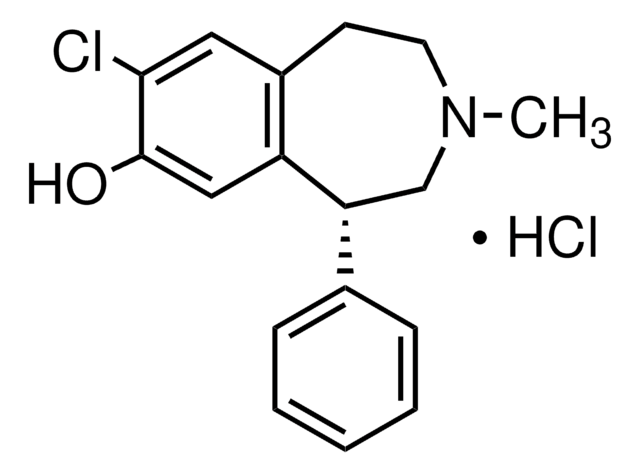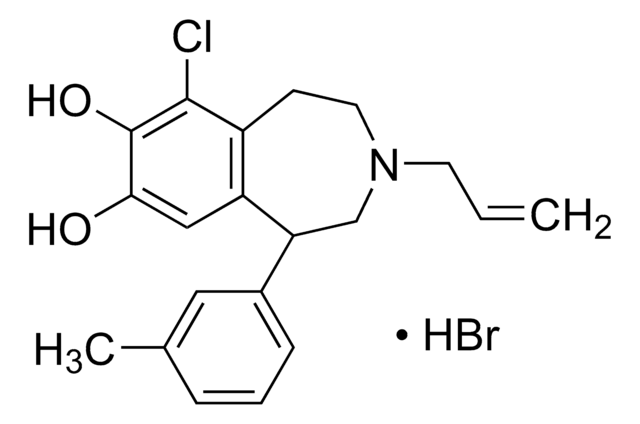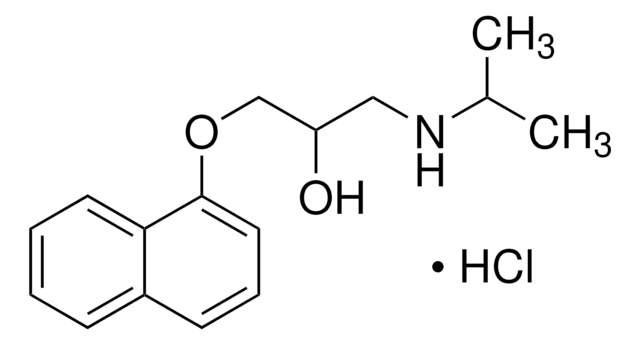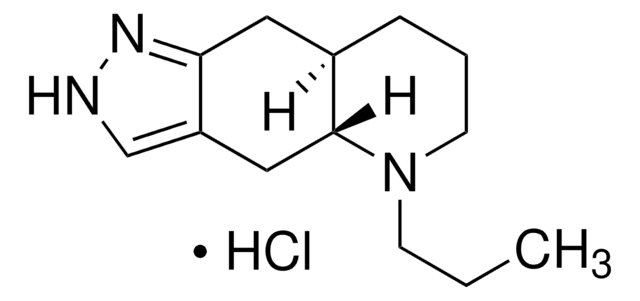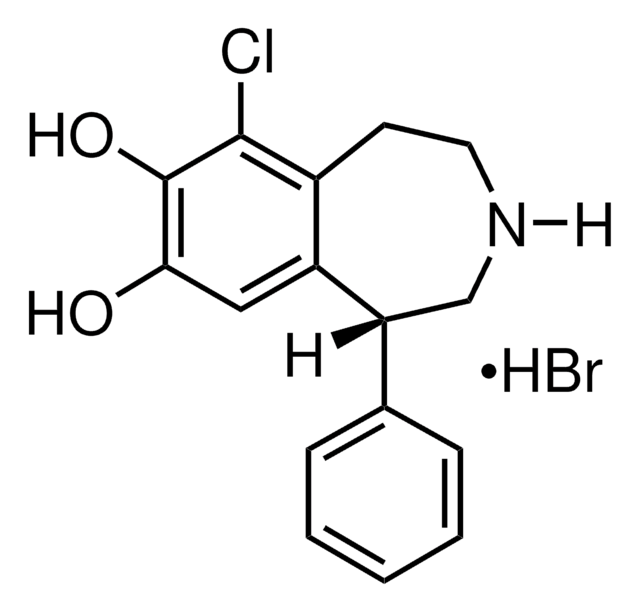S143
(±)-6-Chloro-PB hydrobromide
≥98% (HPLC), solid
Synonym(s):
(±)-6-Chloro-7,8-dihydroxy-1-phenyl-2,3,4,5-tetrahydro-1H-3-benzazepine hydrobromide, (±)-SKF-81297 hydrobromide
About This Item
Recommended Products
Quality Level
Assay
≥98% (HPLC)
form
solid
storage condition
desiccated
color
white to light tan
solubility
H2O: 1.7 mg/mL
DMSO: >10 mg/mL
ethanol: 6.3 mg/mL
SMILES string
Br[H].Oc1cc2C(CNCCc2c(Cl)c1O)c3ccccc3
InChI
1S/C16H16ClNO2.BrH/c17-15-11-6-7-18-9-13(10-4-2-1-3-5-10)12(11)8-14(19)16(15)20;/h1-5,8,13,18-20H,6-7,9H2;1H
InChI key
RMIJGBMRNYUZRG-UHFFFAOYSA-N
Gene Information
human ... DRD1(1812)
Looking for similar products? Visit Product Comparison Guide
Application
Biochem/physiol Actions
Caution
Signal Word
Warning
Hazard Statements
Precautionary Statements
Hazard Classifications
Eye Irrit. 2 - Skin Irrit. 2 - STOT SE 3
Target Organs
Respiratory system
Storage Class Code
11 - Combustible Solids
WGK
WGK 3
Flash Point(F)
Not applicable
Flash Point(C)
Not applicable
Personal Protective Equipment
Choose from one of the most recent versions:
Already Own This Product?
Find documentation for the products that you have recently purchased in the Document Library.
Our team of scientists has experience in all areas of research including Life Science, Material Science, Chemical Synthesis, Chromatography, Analytical and many others.
Contact Technical Service